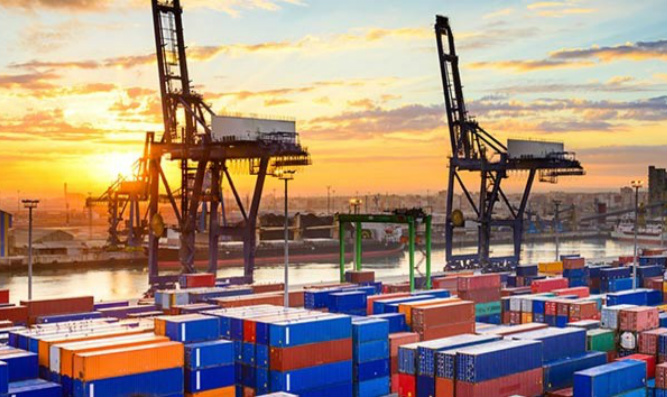
Introduction
In Ghana, Technology Transfer Agreements are entered into between enterprises (referred to as the Transferee) and enterprises outside Ghana (referred to as the Transferor). The provisions of every technology transfer agreement in Ghana must conform to and are governed by the following laws:
- The Ghana Investment Promotion Centre Act, 2013 (Act 865)
- The Technology Transfer Regulations, 1992 (L.I. 1547).
Under Act 865, all Technology Transfer Agreements must be reviewed and registered by the Ghana Investment Promotion Centre, which is the agency of the Ghanaian government responsible for, among others, the registration and monitoring of all technology transfer agreements in Ghana.
Categories of Technology Transfer Agreements
Act 865 categorizes Technology Transfer Agreements into four (4) main forms:
- Agreements covering Industrial Property Rights
- Agreements for the provision Technical Services/Assistance
Agreements covering the transfer Know-How - Agreements for the provision of Management Services
Agreements Covering Industrial Property Rights
These Agreements generally relate to the assignment, sale, and licensing of all forms of industrial property such as licenses, trademarks, trade names, service marks, utility models, and patents.
Agreements for the provision of Technical Services/Assistance
These Agreements generally relate to the provision of technical expertise, e.g., feasibility studies, plan diagrams, models instructions, guides, or formulae.
Agreements covering the transfer of Know-How
These agreements generally relate to the provision of technological knowledge necessary to acquire, install and use machinery, equipment, intermediate goods, or raw materials that have been acquired by purchase, lease, or other means.
Agreements for the provision of Management Services
These Agreements generally cover services related to the day-to-day management of a Ghanaian enterprise by a foreign enterprise.
Allowable Fees for Technology Transfer Agreements
L.I. 1547 sets out a range of fees that a Transferor can charge for services being provided to the Transferee. The range of fees depends on the kind of services that are being provided under a technology transfer agreement. These are as follows:
| Technology Transfer Type | Allowable Fees |
| Industrial Property Rights | 0-6% of Transferee’s Net Sales |
| Technical Services and Know-How | 0-5% of Transferee’s Net Sales |
| Technical Services only | 0-3% of Transferee’s Net Sales |
| Know-how only | 0-2% of Transferee’s Net Sales |
| Management Services | 0-2% of Transferee’s Profit before tax |
The Technology Transfer Regulations also provides that any request to charge fees higher than the upper levels specified above shall be subject to the approval of the Ghana Investment Promotion Centre.
The Technology Transfer Regulations sets out the definition of “Net Sales,” the measure used in determining some of the fees mentioned above. The definition of “Net Sales” is categorized into two:
- The first definition of “net sales” provided for in L.I. 1547 applies to enterprises engaged in the provision of products. “Net sales” is defined as the “ex-factory selling price of the product exclusive of sales tax and excise duties levied by the Government.”
- The second definition of “net sales” provided for in L.I. 1547 applies to enterprises providing services. Here, “net sales” is defined as “the net income accruing from a service, minus the landed cost or payment for any component, materials, and supplies imported from the technology supplier other than initial capital equipment and the first round of components, materials, and supplies imported therefrom.”
Some Key Points to Note for the Registration of a Technology Transfer Agreement
A prospective applicant for the registration of a technology transfer agreement must take note of the following:
- The Agreement must have a duration of not less than eighteen (18) months and not more than ten (10) years. An agreement which is less than eighteen months does not qualify to be registered as a Technology Transfer Agreement, and will not be subject to the provisions of Act 865 and L.I. 1547.
- For renewal applications, the duration of a technology transfer agreement must not exceed five (5) years.
- The Transferee, under a technology transfer agreement, is obliged to provide training on the services being provided to the Transferee.
Benefits of Registering a Technology Transfer Agreement in Ghana
Subject to the Foreign Exchange Act, 2006 (Act 723) an enterprise is guaranteed unconditional transferability in the freely convertible currency of fees and charges in respect of a technology transfer agreement registered under the Ghana Investment Promotion Centre Act.
Notes on contributor
Mr David Yaw Danquah is the founder and Managing Partner of Legalstone Solicitors LLP, a boutique law firm in Ghana with a concentration on Corporate and Commercial, Mining and Infrastructure, Debt Recovery and Restructuring, Real Estate and Construction Law, and Commercial Arbitration.
He heads the firm’s practice areas of focusing are Corporate and Commercial, Mining and Infrastructure, Debt Recovery and Restructuring, and Commercial Arbitration.
David has advised on numerous investment and mining-related transactions. He also has assisted countless international entities in establishing their operations in Ghana, and through his firms, offers support services to those entities. He has an impeccable record of providing technical savvy and exceptional client services.
David is a graduate of Kwame Nkrumah University of Science and Technology (KNUST), Kumasi, where he received his Bachelor’s Degree in Law (LL. B) and the Ghana School of Law, where he studied and received a Post Graduate Qualifying Certificate in Law (PQCL). He holds a Certificate in Negotiation Mastery from Harvard University. Presently, he is pursuing an LL.M Degree in International Dispute Resolution at the prestigious Queen Mary University of London, United Kingdom.
David is a member of the Ghana Bar Association, Association of International Petroleum Negotiators (AIPN) and Institute of Energy Law (IEL) based in Houston, U.S.
Legal Notice
The contents of this publication, current at the date of publication set out above, are for reference purposes only. They do not constitute legal advice and should not be relied upon as such. Specific legal advice about your particular circumstances should always be sought separately before taking any action based on this publication.
© Legalstone Solicitors LLP
